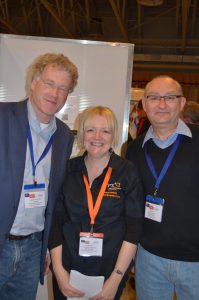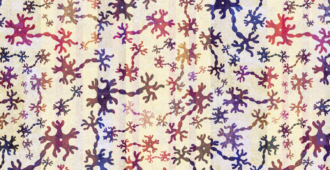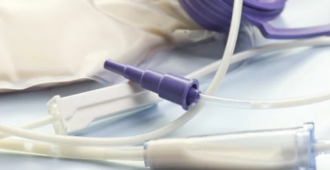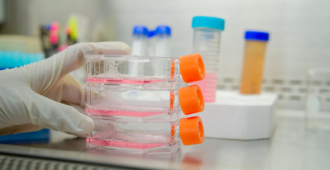
Pauline Frear is PA to Brian Dickie, Director of Research Development, and the team’s administrator. Here she blogs about her role at the MND Association.
In 2007, after much deliberation, I decided to take a career break from my role as PA to the Chief Executive at the MND Association to study for a degree with the Open University (a goal that, I’m happy to say, is almost within my grasp!). Fast-forward nearly seven years and I once again find myself sitting at a desk in David Niven House – but it’s a different one!
Welcome to the Research Development team
I was delighted to take up the position of PA to Brian Dickie, Director of Research Development, last year and my new role is varied. As well as being a source of secretarial support to Brian (which includes juggling diary commitments, making sure he has all the paperwork he needs for meetings and keeping track of the many emails that arrive in his inbox) I’m the Research Development team’s administrator, helping them with a variety of admin tasks that hopefully make their lives a bit easier. I also try and make my fair share of tea and coffee runs!
The symposium process
Probably the largest part of my role is helping with the coordination and administration of the annual International Symposium on ALS/MND, which is a key event for the Association. Preparations for this year’s symposium programme in Brussels began several weeks before last year’s event in Milan ended, and I’m kept busy throughout the year helping Brian as he and the Programme Committee put the programme together, identify plenary speakers and review the many abstracts that are submitted. I work closely with other members of the Research Development team to review progress and make sure everything symposium-related is on track and I also prepare the necessary documents to secure professional accreditation for the event. Obtaining accreditation is a labour-intensive process, but it is a very important aspect of the symposium: as well as providing delegates with an opportunity to obtain evidence of continued learning, it also reflects that the programme’s scientific content is of the highest standard, recognised by professional bodies such as the European Accreditation Council for Continuing Medical Education (EACCME) the Royal College of Physicians (RCP) and the American Medical Association (AMA).
During the event
At the symposium itself I act as a point of contact for those giving platform presentations, as well as helping the Conference team on the registration desk to distribute delegate packs and answer questions. Despite the very early starts and late finishes (and the fact there are few opportunities in between to sit down!) I can honestly say that it’s a wonderfully rewarding experience, and one that I’m looking forward to repeating this December! As my only contact with many of the delegates throughout the year is via email or telephone, it’s great to finally meet them face-to-face and to witness first-hand how they work with fellow colleagues and researchers from across the globe towards the same goal: finding effective treatments for MND.
Although science wasn’t one of my strongest subjects at school, I’ve found myself fascinated by the world of MND research and the science behind it.
It’s great to be back!






Comments are closed.